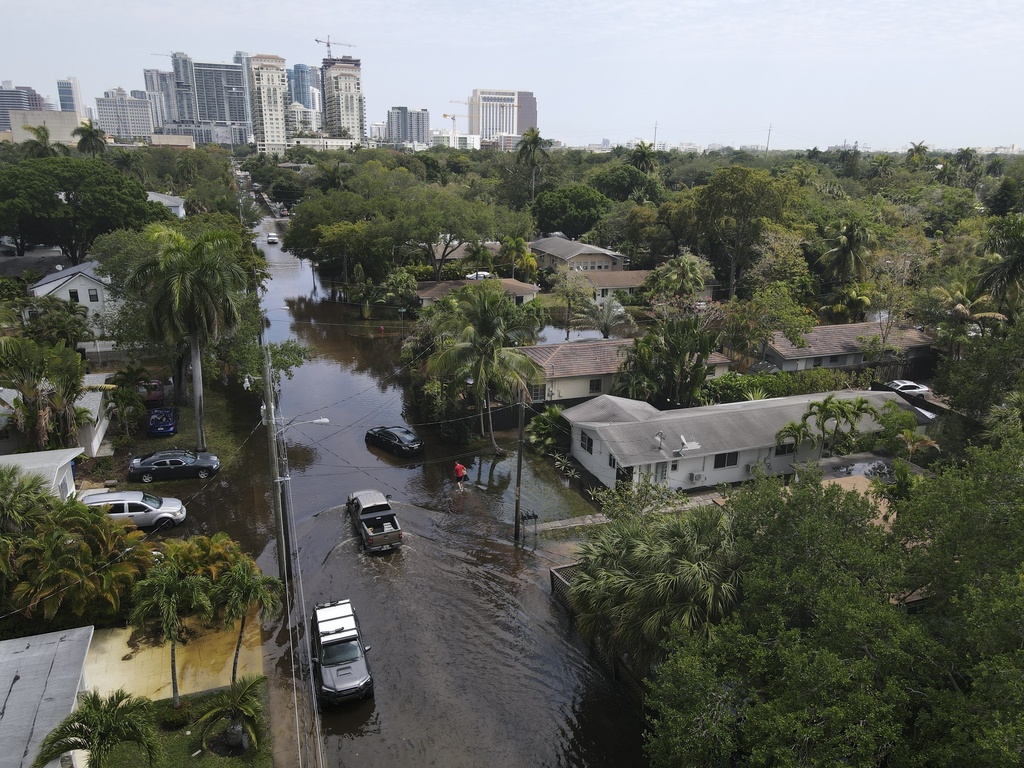Skies are finally starting to clear in Southeast Florida after a hectic night of heavy rain and tropical storm-force winds, but some of the storm's damage will take a bit longer to clear out.
As of Thursday afternoon, more than 51,000 Florida Power & Light customers were still without power, and multiple watches and advisories were still in place.
Overnight rain led to flooding in many tight roadways, creating longer commutes for Floridians early Thursday morning before the water started to recede in some areas.
But standing water still remains in some South Florida areas, particularly those that saw extreme levels of rain.

Key Largo recorded more than a foot of rain since Wednesday, Miami set a daily record when it saw more than seven inches of rain and parts of Fort Lauderdale got up to 5.85 inches.
The weather led to the closing of Broward County's public schools Thursday, and the Metromover transit system was out of service in Miami-Dade County.
Beyond rain, winds reaching up to 70 mph in some areas caused their own set of problems.
In Palm Beach County, a tree snapped in half in one neighborhood, a trampoline was blown from a backyard to a sidewalk and a Christmas tree farm's tent blew over.
Just above it, boats broke loose from their moorings and slammed into seawalls or floated into open waters.
But the storm system appears to be pulling off the state, despite winds up to 40 mph sticking around. Forecasters expect the area to dry out on Friday and into the weekend.
A meteorologist with the National Weather Service in Miami told The Associated Press this storm wasn't associated with a tropical storm due to the way it formed. But another tropical storm could form in the Atlantic this week, adding another system to the already busier-than-normal season of named storms.
SEE MORE: Some states might be able to see the northern lights Sunday night
Trending stories at Scrippsnews.com


